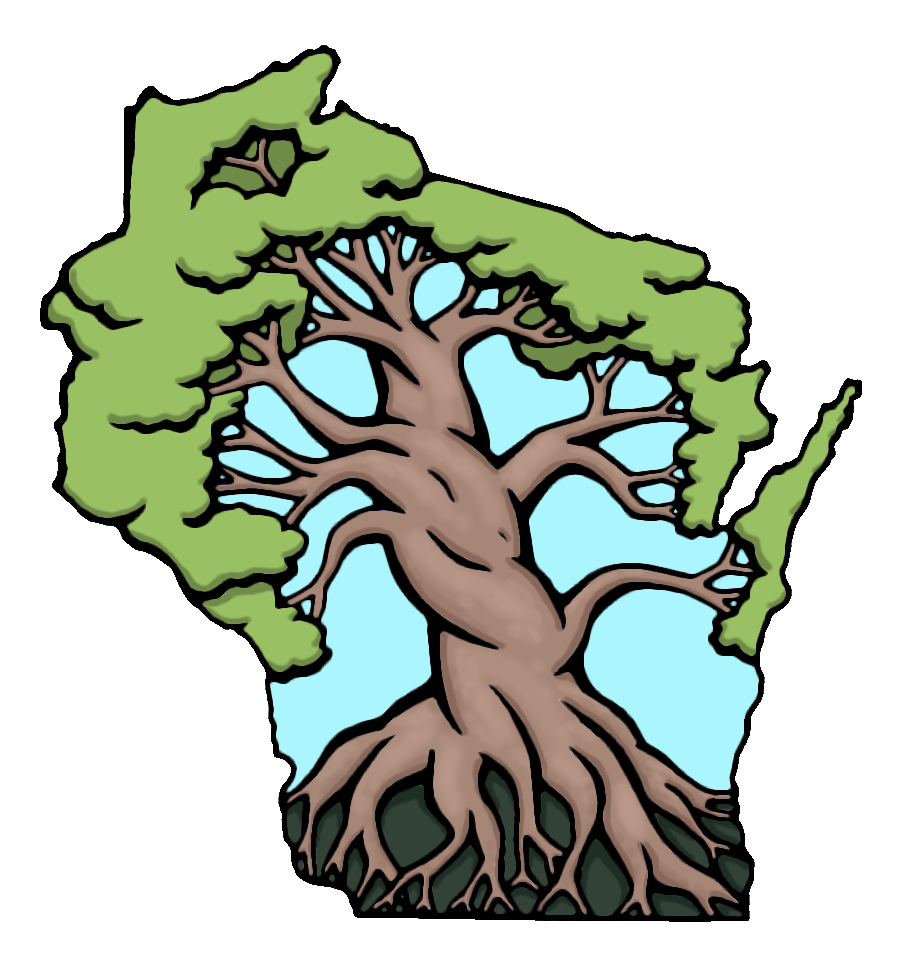Zero Waste is a goal that is “Ethical, economical, efficient and visionary,” as defied by the Zero Waste International Alliance (ZWIA) (also, how couldn't you love the acronym ZWIA?) Zero waste can guide people in changing their lifestyles and practices to emulate sustainable natural cycles, where all discarded materials are designed to become resources for others to use and not burn or bury them.
As we organize the fifth annual Wisconsin Permaculture Convergence, I am thinking about the unintended waste stream that is developed by this (and any other) event, and what we as organizers and attendees can do to reduce (or eliminate?) waste ultimately destined for a landfill. This blog suggests some of the permaculture principles that may inform us as we move toward such a goal.
The most obvious is Principle Six: Produce no Waste. By valuing and making use of all the resources that are available to us, nothing goes to waste.
The icon of the worm represents one of the most effective recyclers of organic materials, converting plant and animal ‘waste’ into valuable plant food. The proverb “a stitch in time saves nine” reminds us that timely maintenance prevents waste, while “waste not, want not” reminds us that it’s easy to be wasteful in times of abundance, but this waste can be a cause of hardship later.
I am also reminded of principle five: Use and Value Renewable Resources and Services. This principle reminds us to make the best use of nature’s abundance to reduce our consumptive behavior and dependence on non-renewable resources.
The horse icon represents both a renewable service and renewable resource. It can be used to pull a cart, plough or log and it can even be eaten – though a non-consuming use is preferred over a consuming one. The proverb “let nature take its course” reminds us that control over nature through excessive resource use and high technology is not only expensive, but can have a negative effect on our environment
But before we aim for a Wisconsin Permaculture Convergence that “produces no waste" or "Use and value renewable resources and services", I think we have to keep two principles in mind this year; "Observe and Interact" and "Use Small and Slow Solutions."
Image from David Holmgren's book "12 Principles of Permaculture"
When we observe and interact, we take the time to engage with nature or a situation such as an event and design solutions that suit the particular situation. The icon for this design principle represents a person ‘becoming’ a tree. In observing nature and the situations we are in, it is important to take different perspectives to help understand what is going on with the various elements in the system. The proverb “Beauty is in the eye of the beholder” reminds us that we place our own values on what we observe, yet in nature, there is no right or wrong, only different.
My memories of the last four convergences are that we have not generated a tremendous amount of waste. However, I know that we have had bags of trash, recycling and compostables (and some of each contaminated in with the other) that had to go somewhere. Additionally, in thinking to past convergence events, I have no knowledge of the waste stream the catering situation generated.
So while the idea of a zero waste event is extremely appealing to me, and there may be ways that we can eliminate or redirect more “waste” this year, our task as an organizing team and as participants is to observe and interact with this year’s event and with our waste stream to see what options there are to further reduce and ultimately eliminate waste by redirecting it to useful purposes for future events.
Image from David Holmgren's book "12 Principles of Permaculture"
And in order not to drive ourselves to frustration, or attempt to put actions in place that actually aren’t useful or practical, or have unintended downstream consequences, the last permaculture principle to follow is number nine, "Use small and slow solutions.”
Small and slow systems are easier to maintain than big ones, making better use of local resources and produce more sustainable outcomes. The snail is both small and slow, it carries its home on its back and can withdraw to defend itself when threatened. The proverb “the bigger they are, the harder they fall” reminds us of the disadvantages of excessive size and growth while “slow and steady wins the race” encourages patience while reflecting on a common truth in nature and society.
I look forward to observing with you, to thinking about producing no waste, to use the waste resources we have for other purposes, to taking small steps and observing and interacting with nature and our waste to work toward small and slow solutions for this and future permaculture convergences.
Joshua Feyen is part of the organizing team for the Wisconsin Permaculture Convergence. He lives in Madison, Wisconsin where him and his partner tend their intensive urban lot which is home to chickens and a large variety of annual and perennial plants.




